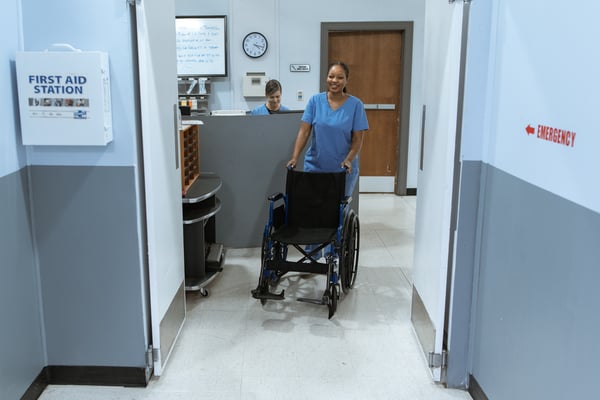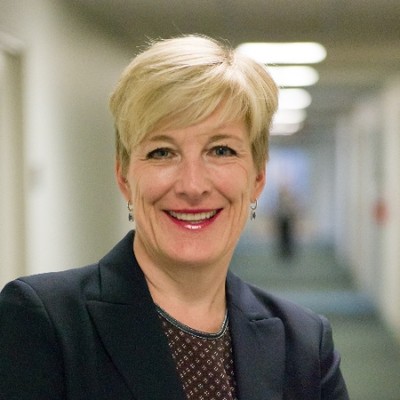The National Association for Student Nurses (NSNA) conducts an annual survey to assess graduate nurses' experiences in the first six to 12 months of their transition from nursing student to professional nurse. The survey is a large national survey using the NSNA membership list representing graduate nurses from all 50 states and multiple territories. Data is collected from May through December, which allows for the capture of two graduating cohorts each year. Nurses respond to a 72-item survey, with the number of respondents typically ranging between two and six thousand annually. The study has been conducted every year for the past 12 years, which has enabled a better understanding on how the experiences of new graduates have changed. Understanding the results from the most recent survey can help your organization better prepare for recruiting and hiring.

Graduate nurses have consistently reported to have experienced the “honeymoon phase,” a time of high optimism and excitement at finally no longer being a student nurse. But the honeymoon phase can still be a stressful time for the new graduate, and even more so for those from the 2021 class due to Covid. Last year a total of 2,664 nurses responded to the survey, which included newly added questions about the impact of the pandemic. These new questions were significant additions because so many colleges of nursing were unexpectedly faced with having to virtually abandon their practice-based learning (i.e. “clinicals”) that nursing students alway experience. Why? Because as soon as the pandemic appeared in our environments, many hospitals stopped allowing students to come on-site, which then meant the colleges and schools of nursing had to quickly change the structure of their clinical hours, those all important practice-based hours, into simulation hours. Many new nurses already experience a sense of reality shock, unprepared for the differences between practice-based clinical hours completed during school compared to actually working on a unit. This new reality simply added to their stress.
To get the latest episodes sent straight to your inbox, subscribe here.
No one could have anticipated the pandemic where practice-based learning was replaced 100% by simulation, and Covid inserted an entirely new dimension to the 2021 graduates’ issue with culture shock. The number one reported concern was feelings of stress, particularly on how the forced change to simulation versus practiced based learning was having an even greater impact on their confidence as a new graduate. As a result of the enhanced stress levels, these graduate nurses had less confidence in their skills and in their ability to adapt to a new work environment, leading many academics and nurse leaders to conclude that simulation will never be able to fully replace practice-based learning. The survey results served as an additional confirmation from a 2014 study where we learned that really only up to 50% of practice-based learning can safely be replaced with simulation. New graduate turnover due to stress or anxiety or strain historically ranges between 15 and 27%. How these new developments impact turnover for the class of 2021 remains to be seen.
There were a number of other results of interest from the survey. In last year’s class, 92% were hired in less than three months and many indicated their number one career option was either to be a travel nurse or to be an ICU nurse, with OB and ED ranking third and fourth respectively—travel nursing as a speciality preference coming from such new nurses was unexpected. The presence, structure and duration of an orientation program were also areas of concern, with orientation results varying based on the size of the hospital. Ten percent of the respondents reported having no orientation at all, 22% with less than a month and another 22% less than three months. Only 5% of the new nurses had an orientation that lasted a year or more, which typically comes only with a formal nurse residency program. Preceptors also are important to new graduate orientation. During the pandemic preceptors were stressed, there were too few, and any formal nurse residency programs were disrupted. Mentors are also important to orientation and to a new graduate’s transition, but there was only time for minimal mentoring due to the pandemic.
.jpg?width=600&height=400&name=pexels-jakayla-toney-5922841%20(1).jpg)
Additional reported issues included:
- How much stress is in the environment because of the workflow,
- Workload and schedule
- 12-hour shifts
- Peer-to-peer communication or physician to nurse communication
- Delegation
- End of life care and high acuity
- Ethnicity, race and/or gender (some reported even more stress, especially the men)
Clearly, this class of graduates really struggled with adapting to such a non-typical transition into the clinical environment.
Last year was a difficult year for graduate nurses and is making recruitment efforts more difficult. Do you have a mentoring program? Do you have a residency? Do you have preceptors? All of those are best practices that you absolutely want to be able to brag about in the recruitment process when your new graduates come to talk to your organization. You can count on most new graduates asking you those very questions because they've been encouraged by their faculty to do so. Having ready answers to their questions has become even more important to your success in recruiting the new graduates.
Check out this episode on our educational series, On the Horizon in Healthcare, on YouTube. For more information on how to effectively attract talent, schedule a demo.
